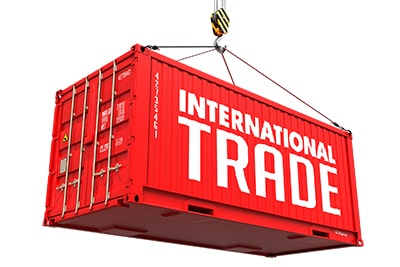DMCC Company Regulations, 2020
 Regulations in the business world are essential and a mechanism to protect workers, public safety, businesses, and investments. However, regulations which are inefficient or inadequate can indeed stifle entrepreneurial activity and business growth which ultimately impacts the ease of conducting business. For instance, it takes about 200 hours to complete the export border requirements for maritime transport in Cameroon and Côte d'Ivoire. On the contrary, it takes only 10 hours in Singapore. In Gabon, the border compliance for export at seaports at an average cost about $1,600, but in Mauritius, the same costs just over $300. What can drive the businesses away from the oversight of regulators and tax collectors into the dark shadows of the informal sector or in hunt of a more supportive business environment? Burdensome rules! Where the rules prevent economic activity from flourishing, foreign investors may reject the economies. The freedom to do business economically goes hand in hand with economic development and a thriving private sector. These, in turn, reinforce poverty elimination and the pursuit of shared flourishing prosperity.
Regulations in the business world are essential and a mechanism to protect workers, public safety, businesses, and investments. However, regulations which are inefficient or inadequate can indeed stifle entrepreneurial activity and business growth which ultimately impacts the ease of conducting business. For instance, it takes about 200 hours to complete the export border requirements for maritime transport in Cameroon and Côte d'Ivoire. On the contrary, it takes only 10 hours in Singapore. In Gabon, the border compliance for export at seaports at an average cost about $1,600, but in Mauritius, the same costs just over $300. What can drive the businesses away from the oversight of regulators and tax collectors into the dark shadows of the informal sector or in hunt of a more supportive business environment? Burdensome rules! Where the rules prevent economic activity from flourishing, foreign investors may reject the economies. The freedom to do business economically goes hand in hand with economic development and a thriving private sector. These, in turn, reinforce poverty elimination and the pursuit of shared flourishing prosperity.
Doing Business 2020 Style in Dubai
New rules and regulations were issued by the Dubai Multi Commodities Centre (DMCC) and Government of Dubai Authority on commodities trade and enterprise, effective from 2 January 2020 to further boost the ease of setting up as well as conducting business in DMCC. According to the official figures in 2019, almost 2000 new companies were registered in the DMCC, taking the cumulative to over 16,000 companies registered in the free zone. The new Companies Regulations 2020 (Regulations) updates the existing company law framework, providing greater flexibility and ease of operations for businesses registered within DMCC and increasing the remit of their activities.
The Regulations replace the DMCC Company Regulations 2003 and rules and regulations issued thereunder. There have been several fundamental changes to the previous regulations.
What has changed?
Standard or modified Articles of Association (AOA)
The Regulations provide the companies with the flexibility to either adopt the DMCC's standard template AOA or opt for a modified AOA. This is a positive change from the previous regulations which restricted the DMCC companies from deviating from the prescribed standard form AOA. However, adopting modified AOA requires the submission of a legal opinion to the DMCC Registrar confirming compliance with the Regulations. If the Registrar notifies a Company that, in the opinion of the Registrar the Articles of the Company contain a provision which is contrary to or inconsistent with these Regulations, that particular company must amend its Articles in such manner as the Registrar may direct. The DMCC is yet to clarify the definition and scope of "legal opinion".
Share capital and share classes
As per the Regulations, there is no statutory share capital requirement of AED 50,000. However, the DMCC Authority may impose a share capital for certain activities as required. A bonus issue of shares is permitted to the shareholder of a DMCC company, provided that it is made out of the retained earnings of the company. Corporate entities licensed by the Dubai Multi Commodities Center Authority (DMCCA) can issue different types of shares which permits them to structure their shareholding as per their needs. The shareholders may provide in their AOA, the kinds of shares that can be issued and the rights which are attached to each type of share (Regulation 27). The Regulations do not mention any specific types of shares, and under Regulation 32, only bearer shares are expressly prohibited from being issued. The issuance of different kinds of shares provides the company with the opportunity to look for financial investors without the requirement of furnishing them with the same rights as the existing/voting shareholders.
Corporate governance
 The Regulations introduce the "Officer Rules", which is intended to set out and govern the roles, responsibilities, duties, procedures and arrangements related to officers (i.e., managers, directors and secretaries) of a DMCC company. Also, a DMCC company may appoint a corporate services provider as company secretary. More importantly, the Regulations prohibit a DMCC company from providing any form of financial assistance to directors. The Officer Rules lay down the requirements and conditions for the appointment of a director, manager and secretary, and define the tasks and obligations of the respective position as follows:
The Regulations introduce the "Officer Rules", which is intended to set out and govern the roles, responsibilities, duties, procedures and arrangements related to officers (i.e., managers, directors and secretaries) of a DMCC company. Also, a DMCC company may appoint a corporate services provider as company secretary. More importantly, the Regulations prohibit a DMCC company from providing any form of financial assistance to directors. The Officer Rules lay down the requirements and conditions for the appointment of a director, manager and secretary, and define the tasks and obligations of the respective position as follows:
Director-
- Implementation of the overall strategy, business activities and affairs;
- Compliance and governance of Risk Management; and
- Ensuring the manager and secretary are fulfilling their tasks.
Manager-
- Day to day management following the directors' directives; and
- Implementation of any powers granted by the AOA or by the directors and shareholders.
Secretary-
- Filing documents with the Registrar as per the Regulations;
- Calling for the directors' or shareholders' meetings; and
- Maintaining and keeping the register for the minutes of the meeting.
Mandatory appointment of Company Secretary
Each corporate entity has to have at a minimum one manager, one director and one secretary. However, in the case of a branch, only one manager is required, whereas the appointment of a secretary is optional. While the directors and managers can only be natural persons, the secretary may also be a corporate entity. The third-party service providers, such as legal consultants may be appointed as secretaries to fulfil this legal requirement.
Insolvency
The Regulations provide extensively for the insolvency procedures as well as winding up of a DMCC company. The Winding Up Routes cover the winding-up procedures, powers of directors and appointment of liquidators. They include solvent winding up, summary winding up, insolvent winding up and involuntary winding up. The Regulations maintain the applicability of the UAE Federal Bankruptcy Law No. 9 of 2016 (and any amendments), but the interplay of both legislations is still unclear.
Voluntary suspension of company license
By requesting the DMCC Registrar, a DMCC company can have its license suspended which could be for 12 months or more subject to the approval by the DMCC Registrar. It is beneficial for those companies in particular who wish to temporarily suspend their operations in the DMCC, without the obligation to formally initiate the de-registration procedures or be at the risk of receiving fines for violating the licensing procedures in the DMCC. A dormant company status has been introduced to enable the voluntary suspension of a commercial license.
Dividends
The Regulations provide more onerous provisions concerning dividends, including specific provisions to address the consequences of the unlawful distribution.
Auditing and reporting
There are well-defined provisions concerning the auditing and reporting of the financial accounts of a DMCC company. The financial accounts should be prepared according to the International Financial Reporting Standards. The auditors and the DMCC company are obliged to disclose to the DMCC Registrar all breaches or non-compliance with the provisions of the Regulations.
Maintenance of Company Registers
Regulation 39 states that a Company must have, (a) a Shareholder Register; (b) an Officer Register; (c) a Security Register; and (d) a Minutes Register, in a legible form capable of being reproduced within a reasonable time. A Branch must have an Officer Register in a legible form capable of being reproduced within a reasonable time.
Greater flexibility in conducting shareholder's meetings
As per Regulation 59, notwithstanding anything in the Company's Articles and upon a Shareholders' Request, the Directors or Secretary must call an extraordinary General Meeting; or a meeting of Shareholders of the relevant type or class of shares, to be held as soon as possible but in any case not later than sixty Business Days after the date of the Shareholders' Request.
Regulating and Certification of a Branch
The Regulations provide provisions for regulating branches and issuance of an establishment certificate for new and existing branches.
Migration
As per the Regulations, DMCCA also offers the existing companies to migrate into the DMCC. A company registered in another UAE free zone, in the mainland or even in a foreign jurisdiction has the opportunity to relocate its business to the DMCC by keeping its corporate identity. However, it should be noted that migration into the DMCC will only be possible if the exiting jurisdiction acknowledges and recognizes the possibility to migrate into another jurisdiction. To successfully migrate into the DMCC, the company will require a no-objection certificate from its Registrar. Currently in the UAE, only the Jebel Ali Free Zone, the Dubai Airport Free Zone and Dubai South are offering such a possibility. The same aforementioned conditions apply if a company wants to migrate out of the DMCC into another jurisdiction. The Regulation 18 states that a Non-DMCC Entity may if authorized by the laws and regulations of the jurisdiction in which it was formed, make a Continuation Application to the Registrar for it to continue as a Company.
In summary, these Regulations recognize the following types of entities: (a) Companies; and (b) Branches. A Non-DMCC Entity will be recognized as a Company under these Regulations upon its transfer to the DMCC Free Zone in accordance with Regulation 18. A person is only permitted to conduct business operations in or from the DMCC Free Zone if the Registrar has issued to that person: (a) a Certificate of Registration (in the case of a Company) or Certificate of Establishment (in the case of a Branch); and (b) a License (unless the person is an Exempt Entity), in each case as provided for in these Regulations and the Licensing Rules. Each DMCC Entity must unless exempted by DMCCA, at all times maintain a valid License and comply with the terms and requirements as set out in the Licensing Rules.
The Regulations clarify for the avoidance of doubt, the provisions of Federal Law No. 2 of 2015 Concerning Commercial Companies do not apply to any DMCC Entity.
Immediate action to be taken:
Each company must within twenty-four months from the date the Regulations come into force (or such other period as may be agreed with the Registrar), amend its Articles to the extent that the provisions of its Articles are contrary to or inconsistent with these Regulations.
Conclusion
 The Regulations provide the investors to benefit from a more robust commercial and regulatory framework governing the operations and management of the company in the free zone. The Regulations provide clarity on matters that raised questions in the past, especially about the tasks and responsibilities of officeholders. Howbeit, there are areas of ambiguity that need to be clarified through the actual implementation of the Regulations by the DMCCA. The Regulations are indicative of the commitment to provide companies with a seamless ability to set up and grow their operations. Furthermore, the possibility to adopt own Articles of Association along with the potential to issue different types of shares will provide the companies with greater flexibility to structure their shareholding, attract new investors and expand their business.
The Regulations provide the investors to benefit from a more robust commercial and regulatory framework governing the operations and management of the company in the free zone. The Regulations provide clarity on matters that raised questions in the past, especially about the tasks and responsibilities of officeholders. Howbeit, there are areas of ambiguity that need to be clarified through the actual implementation of the Regulations by the DMCCA. The Regulations are indicative of the commitment to provide companies with a seamless ability to set up and grow their operations. Furthermore, the possibility to adopt own Articles of Association along with the potential to issue different types of shares will provide the companies with greater flexibility to structure their shareholding, attract new investors and expand their business.
According to the DMCC figures, over seven new businesses are established in DMCC per day. The DMCCA is confident that, along with their location, infrastructure and service, the Regulations will also aid in increasing the number of businesses incorporated in DMCC.
 English
English
 عربي
عربي Русский
Русский 官话
官话 português
português
 Türk
Türk 









